Semesa Rokoduguni: Fijian British Army soldier answers England call
- Published
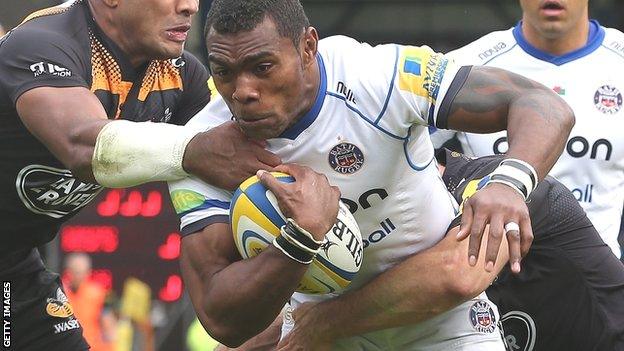
Rokoduguni is a lance corporal in the Royal Scots Dragoon Guards
Keith Miller, the great Australian all-rounder and World War II pilot, was once asked to compare the pressures of playing cricket to flying raids over Germany. Miller replied: "Pressure is a Messerschmitt up your backside, playing is not."
When I relay Miller's quote to Bath winger and new England cap Semesa Rokoduguni, he breaks into a grin of recognition - because Rokoduguni, unlike most modern-day sportsmen, shares Miller's more nuanced perspective that comes with being shot at and seeing mates being blown up and killed.
On Thursday, Rokoduguni was named in England's squad for the autumn internationals. But the 27-year-old, a Lance Corporal with the Royal Scots Dragoon Guards,, external has been putting more than his body on the line for the people of England for some time.
And when you've experienced the horrors of war, the thought of playing the All Blacks at Twickenham must seem trivial.
At the age of 19, Rokoduguni left his home village near the Fijian capital Suva to serve in the British Army.
In his first week in Afghanistan, a marine he was on patrol with stepped on a mine and lost both legs. Like many soldiers who have seen colleagues maimed or killed, Rokoduguni thanked God it wasn't him and vowed to make the most of life's opportunities.
"If that had been me, losing both legs and not reaching my full potential, there could have been nothing worse than that," says Rokoduguni. "So when I came back from Afghanistan I had a different view of life: make the best use of every chance you have, because that chance might only come round the once."
Lowdown on Semesa Rokoduguni |
|---|
Born: 28 August, 1987 in Nausori, Fiji |
Occupation: Lance Corporal in the Royal Scots Dragoon Guards & professional rugby player |
Club: Bath - Debut in Nov 2012 v Newport Gwent Dragons. Scored two tries |
Appearances: 29 Points: 55 Tries: 11 |
Played one game for England Saxons v Scotland A; once for England in non-cap game v Barbarians |
Rokoduguni's Bath team-mates, almost all of whom would have been dreaming of playing professional rugby since they were in their teens, are naturally intrigued by this real-life warrior in their midst.
"The boys ask me about army stuff all the time," says Rokoduguni, whose father is in the Fijian Army and will return to Syria later this year, and whose brother and sister are with the Black Watch regiment, based in Inverness.
"I say, 'Boys, it's like this: when you're out on the rugby field and you get something wrong, miss a tackle, miss a chance to score, you can always come back and get it right the next time. But out in Afghanistan, you can't afford to make mistakes, because a mistake might mean somebody loses their life.
"'So you need to be on top of your drills, punctual, observe the correct dress codes, have your weapons ready, your rockets loaded, everything prepared before you go on patrol.
"And when you're on patrol you need to be alert every single minute, because there could be somebody pointing a gun at you.'"
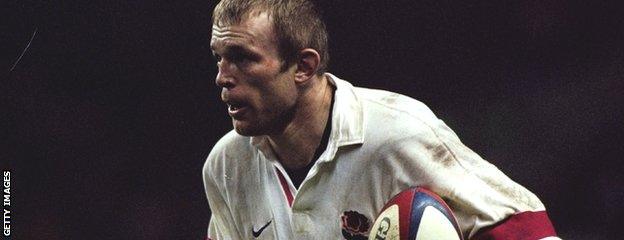
Tim Rodber, an Army captain who won 44 caps (1992-1999), was the last serving soldier to play for England. Josh Lewsey (55 caps, 1998-2008) was picked while training for the Army but never saw active service
Rokoduguni is telling me all this from Bath's palatial training base, Farleigh House, a 19th-century country pile with three pristine rugby pitches out front. But it is fitting that I end up chatting with him in a laundry room, with me wondering "how did we get here?" and Rokoduguni much the same.
"I couldn't even make it to the bench at school," says Rokoduguni, smiling sweetly at the absurdity of life. "There were lots of players better than me. The plan was to have a career in the Army, support my family back home, get to full corporal or sergeant and go back myself. This was not part of the plan."
Having impressed playing sevens for his regiment, Rokoduguni graduated to the Army sevens team before being called up for XVs. He scored four tries against the RAF in 2011 before another hat-trick against the Navy at Twickenham in 2012 alerted then Bath head coach Gary Gold. Cue more of that absurdity.
"I picked up the phone and the person on the other end said, 'This is Gary Gold from Bath Rugby'," says Rokoduguni, who is effectively on secondment with Bath but still lives in army digs in Warminster with his wife and son. "I was like, 'yeh, right', and hung up.
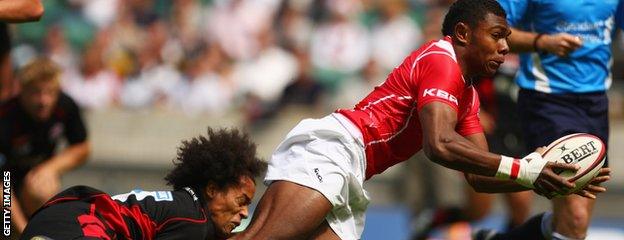
Rokoduguni played for the Army against Saracens in the Middlesex Sevens at Twickenham in 2008
"Luckily, he phoned up my regiment boss, who was a massive Bath fan. It was only then I thought, 'right, this is serious'. Bath offered me a two-week trial and I impressed enough to be offered a contract. So I went and played rugby. And if that hadn't gone anywhere, there was always a plan B - army life."
While mistakes in professional rugby do not cost lives, they do cost more than mistakes made playing rugby for the Army. So while Rokoduguni was rugged, quick and elusive when he arrived at Bath, he was also raw and naive.
"In the Army, if a pass didn't go to hand or a kick wasn't accurate, people accepted that," says Rokoduguni. "But in the Premiership, mistakes cost you games. Even the academy players were more knowledgeable than me when I first arrived. I was like, 'give me the ball, I'll do whatever'. But I couldn't."
Having stacked on more than three stone in two years (he now weighs about 16st 5lb), seemingly without losing any of his pace, Rokoduguni is now being given the ball by his team-mates quite often.
Last season, he beat more defenders than any other player in the Premiership. This season he has scored four tries in Bath's first six Premiership games. He can go round defenders and, fittingly for somebody who drives tanks for a living, he can go through them. He can also hit like a wrecking ball.
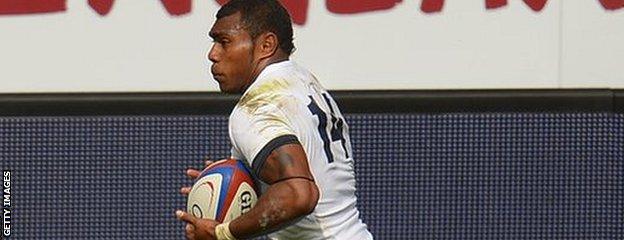
Rokoduguni has already played for England in a non-cap game against the Barbarians in June
In February, Rokoduguni, having had no contact from the Fiji Rugby Union for more than a year, played for England Saxons against Scotland (whom he could also have represented) but was hampered by a knee injury and failed to impress.
However, England head coach Stuart Lancaster does not have too many wingers with Rokoduguni's talents at his disposal.
And when he is reminded of England's first fixture at the 2015 World Cup, against Fiji at Twickenham, Rokoduguni beams and shakes his head. Yet more absurdity and not part of the plan either.
"When I was a kid," he says, "I looked at my dad with all those medals across his chest and said, 'One day I'm going to have my own medals.' I was so proud. And when I was named in the England Saxons squad, my dad felt the same. He was over the moon, he couldn't believe it was happening.
"It will be a massive honour to serve England at rugby. And I hope people will see me as a British citizen and appreciate everything the foreign-born soldiers are doing for this country, putting their lives on the line."
Any player who turns out for his country in any sport feels pressure. But Rokoduguni reminds us that sport is not a matter of life and death - it is much, much less important than that.
- Published6 November 2014
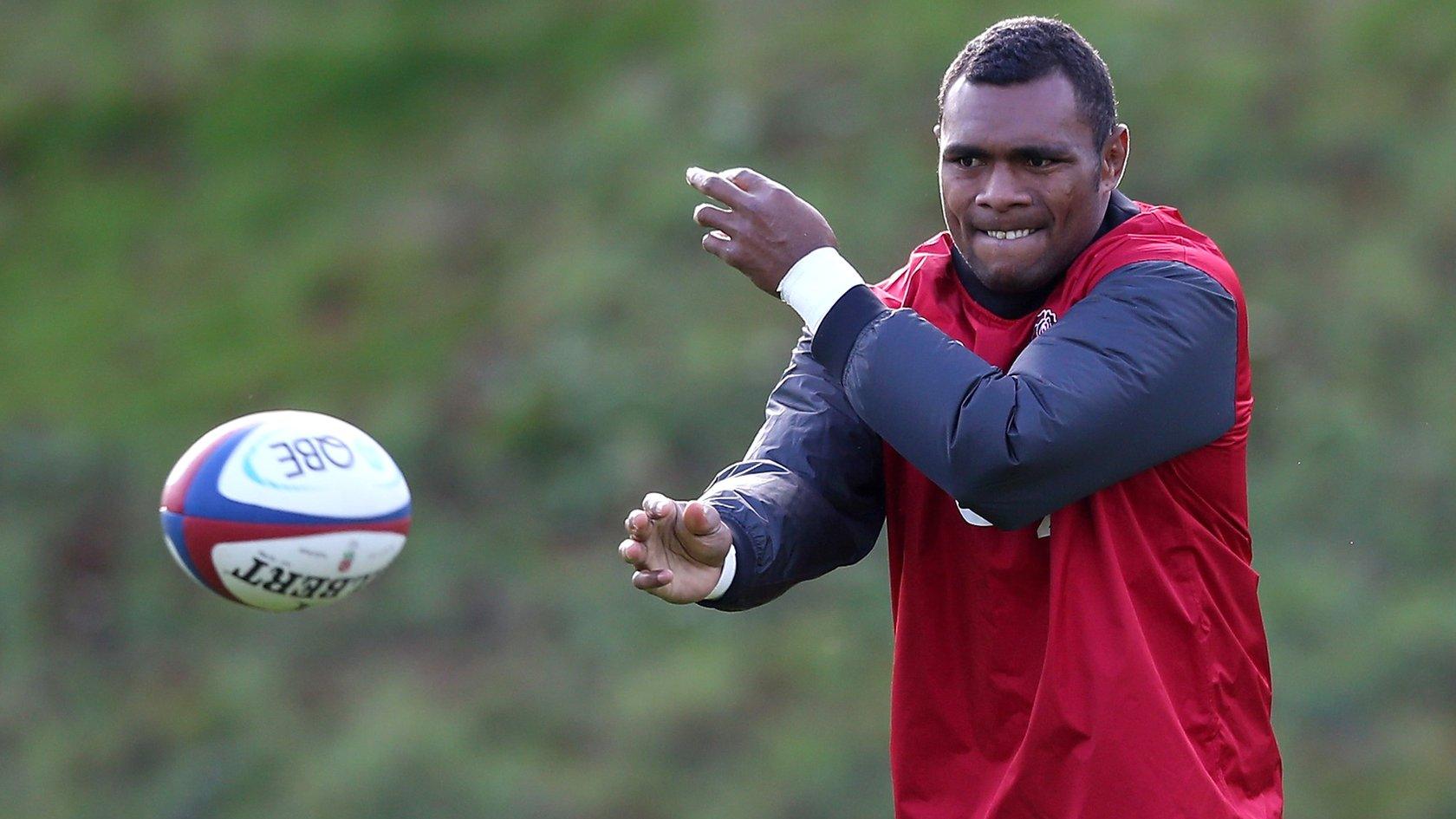
- Published22 October 2014
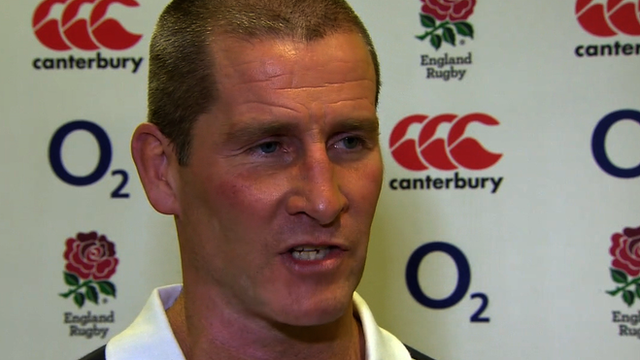
- Published21 October 2014
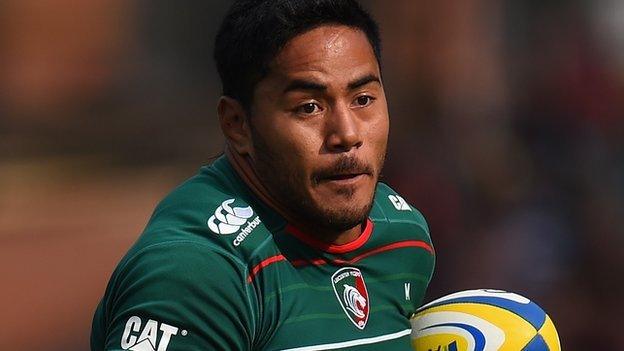
- Published20 October 2014

- Published7 July 2014
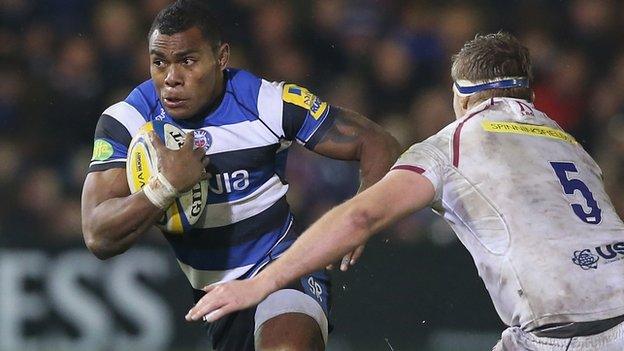
- Published17 January 2014
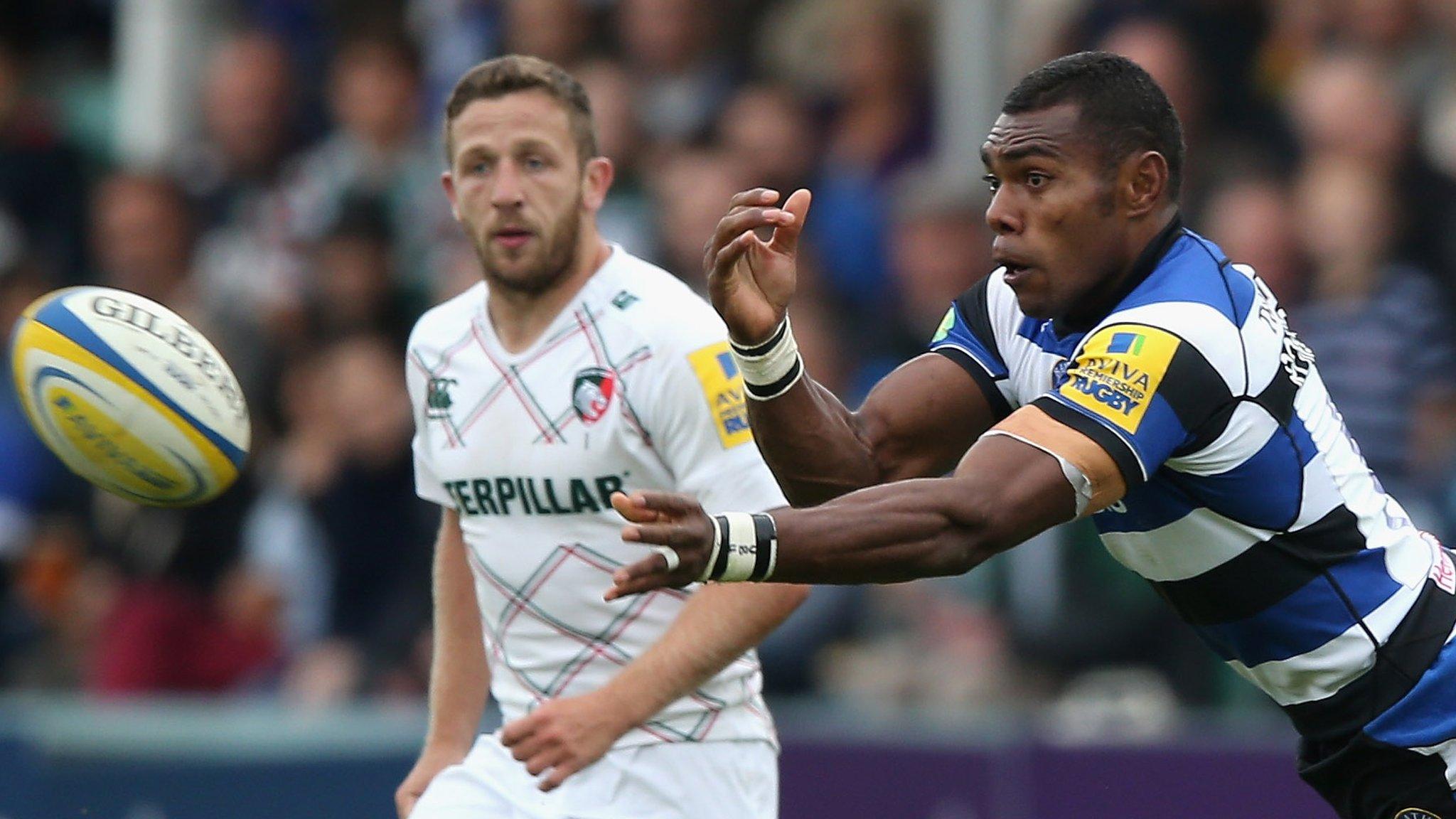
- Published12 November 2012
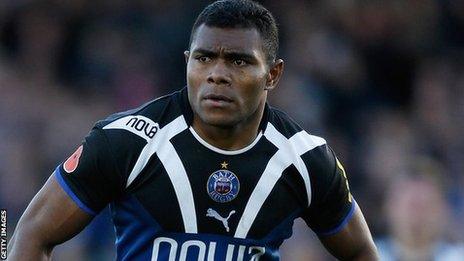
- Published14 September 2016

- Published15 February 2019
